Time-lapse video shows wildfire smoke from Canada consuming New York City
The National Weather Service is urging "vulnerable" groups like seniors and young children to limit time outdoors.
The year of 2023 was a wild one for weather, with many unusual and record-breaking events happening in the U.S. and overseas.
Here are five of the wildest weather moments this year:
Escape from Burning Man: Flooding causes chaos at popular Nevada festival
Torrential monsoon rains drenched tens of thousands of attendees at the Burning Man festival around Labor Day in Nevada, turning their departure from the makeshift city in the Black Rock Desert into a muddy nightmare.
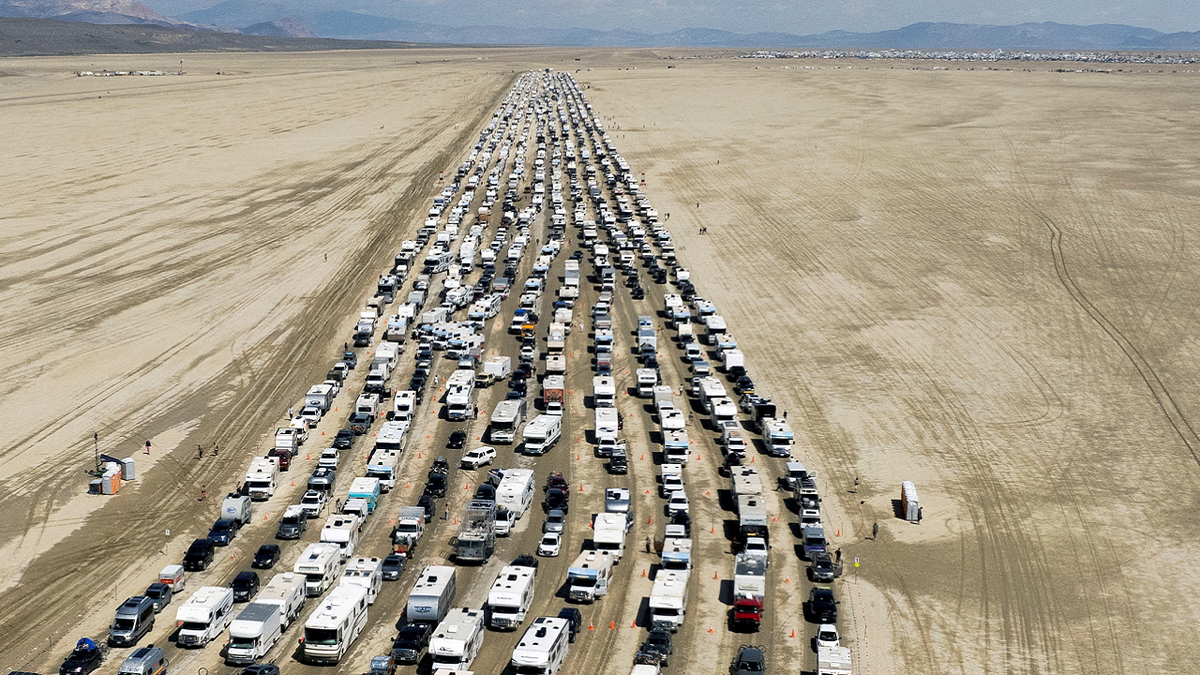
Vehicles are seen leaving the Burning Man festival in Black Rock City, Nevada, on Sept. 4. (Reuters/Matt Mills McKnight/TPX Images of the Day)
Attendees were told that weekend to shelter in place and conserve resources as radar estimates showed as much as an inch of rain fell in short periods with thunderstorms rolling over the usually arid region.
While some continued their Burning Man experience, celebrity DJ Diplo and comedian Chris Rock decided to walk out. Other attendees did the same, wondering how long they might be stuck on the lake bed also known as the playa.
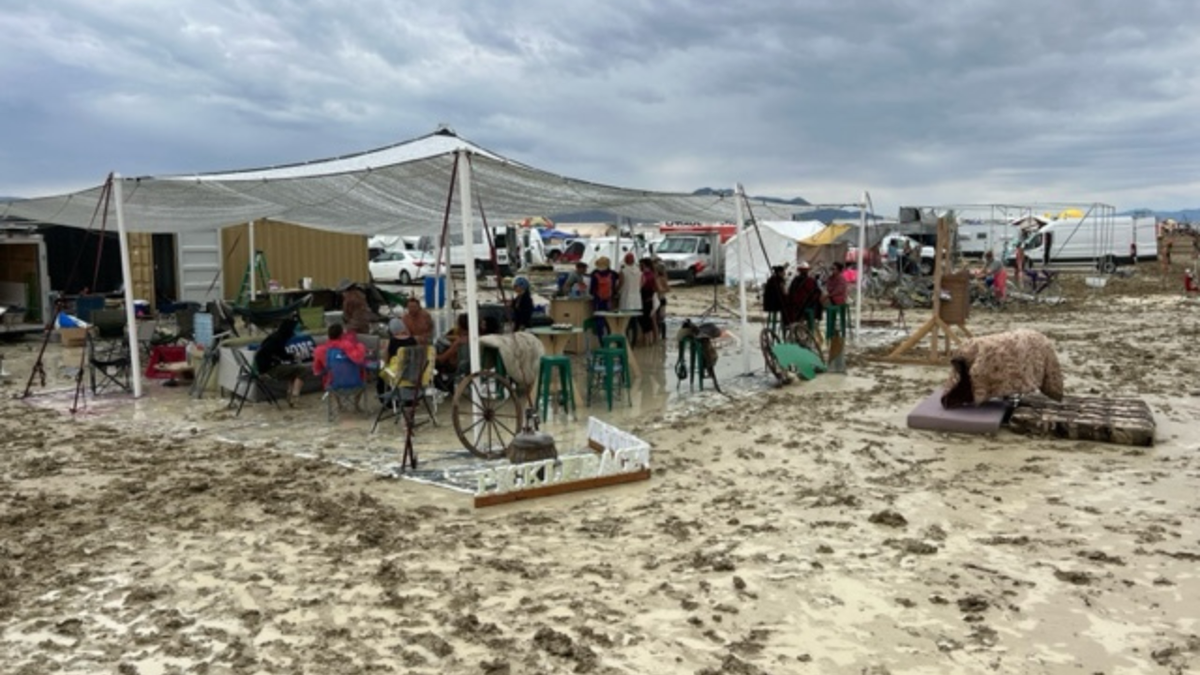
Burning Man attendees were told to shelter in place and conserve resources amid heavy flooding in the area. (Claudia Cowan/Fox News)
Once the main road opened leading out of the area and a driving ban was lifted, festival organizers reported traffic jams of more than seven hours.
Wildfire smoke from Canada pours into the Northeast US
Smoke from wildfires in Canada that drifted south into the U.S. in June prompted air quality alerts for millions of Americans in the Northeast, grounded flights and created eerie conditions in major metropolitan areas such as New York City.
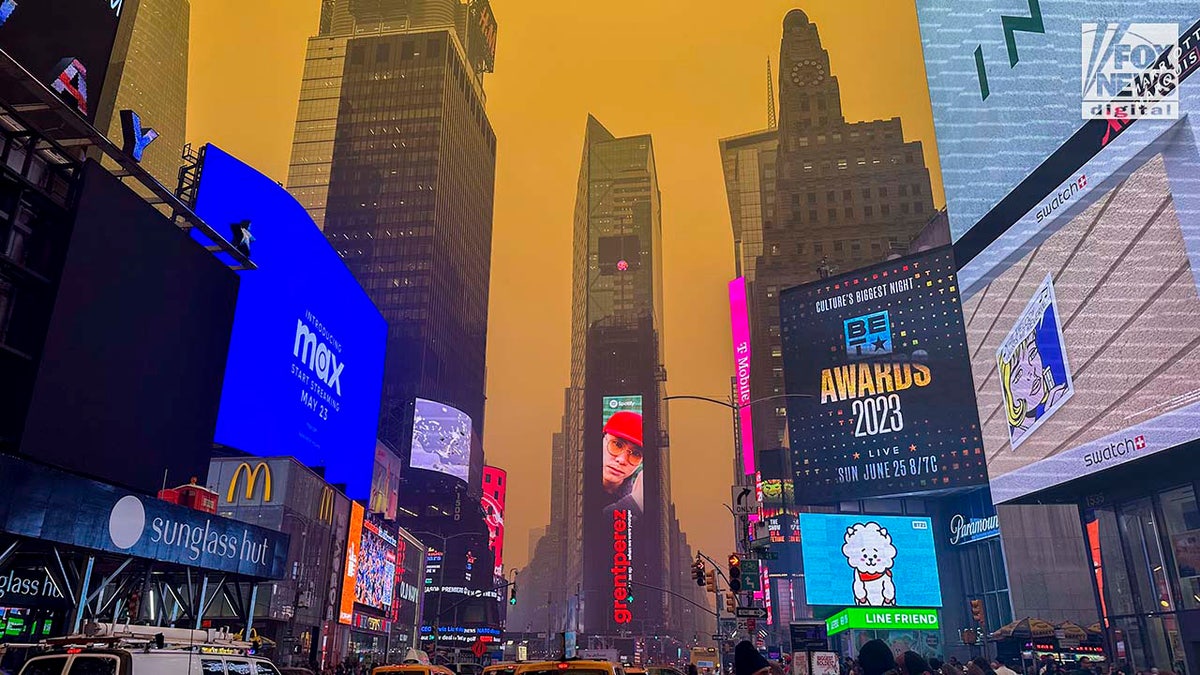
Smoke from Canadian wildfires looms over New York City's Times Square on June 7, 2023. (Julia Bonavita/Fox News Digital)
The smoke, which also spread into parts of the Midwest and Mid-Atlantic, blanketed towns and cities with a low-visibility smog and even prompted the cancellation of Major League Baseball games over health concerns.
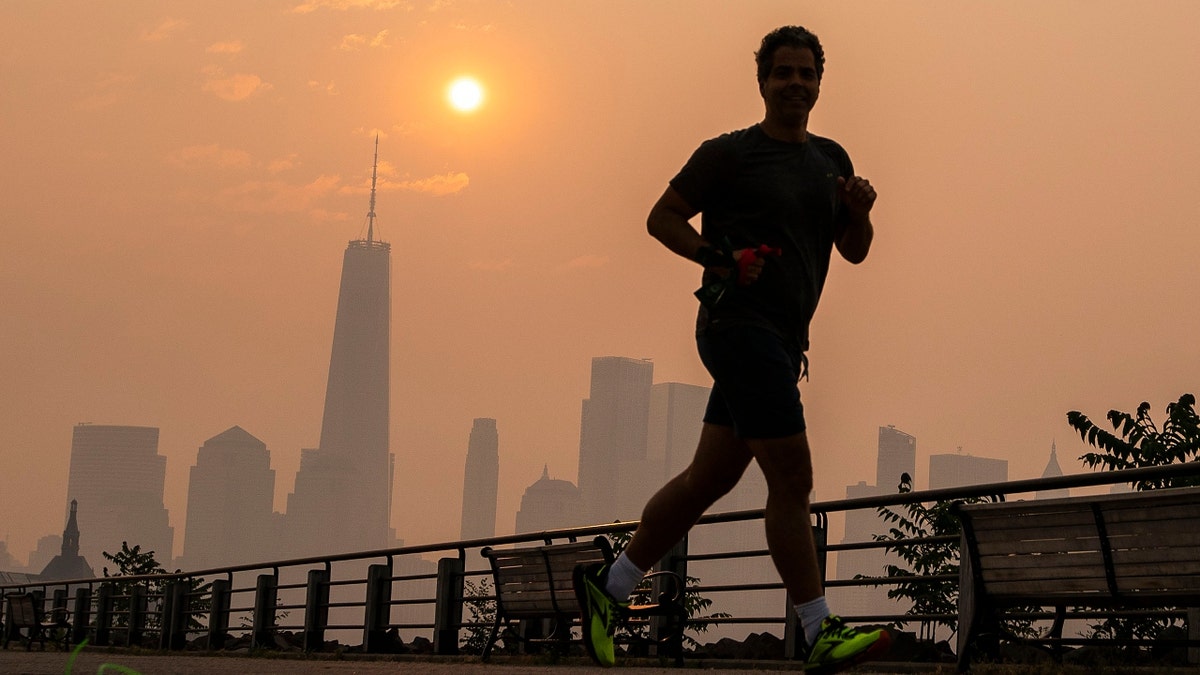
One World Trade Center and the New York City skyline are shown in the distance as smoke from Canadian wildfires hovers over the city on June 8, 2023. (Eduardo Munoz Alvarez/Getty Images)
New York City at the time was experiencing its worst air quality in recorded history, per FOX Weather’s analysis of EPA historical data.
Tropical Storm Hilary hits Southern California
More than 21 million people in August were under Southern California’s first-ever tropical storm warning as Hilary drenched the West Coast.
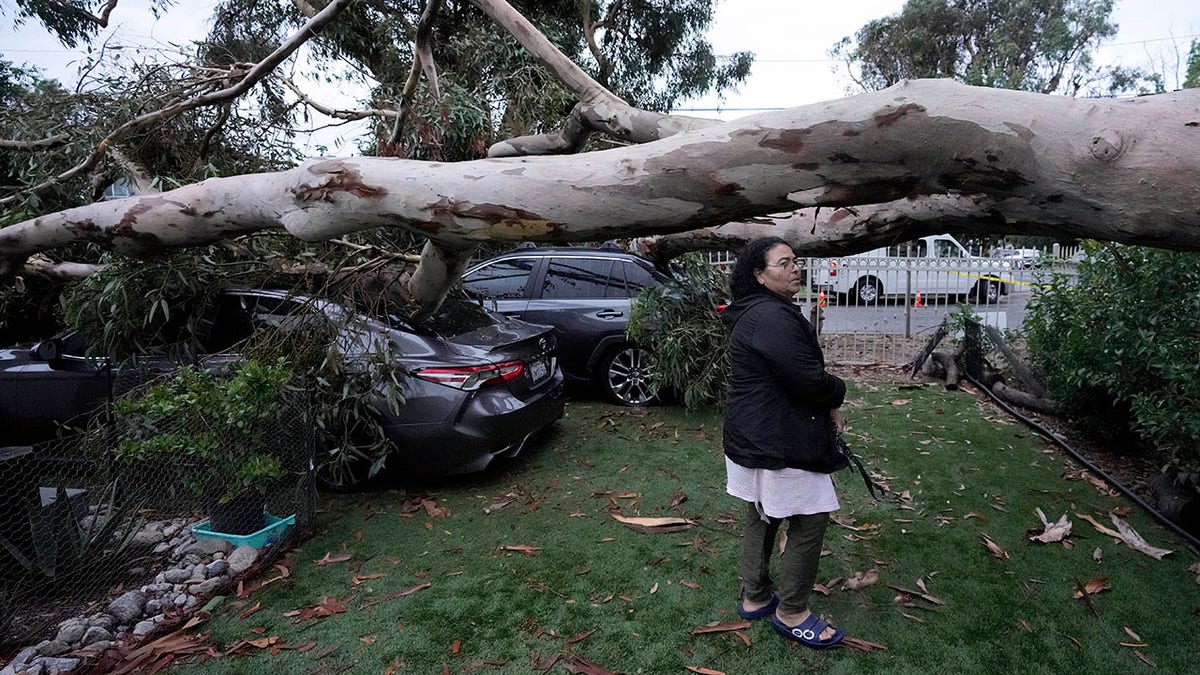
Maura Taura surveys the damage caused by a downed tree outside her home after Tropical Storm Hilary passed through Sun Valley, California. (AP/Marcio Jose Sanchez)
The storm, which once was a Category 4 hurricane, made landfall along the southern Baja California peninsula and brought flooding rain, mudslides and the occasional funnel clouds to Southern California and the Desert Southwest.
The National Weather Service's San Diego office said that Aug. 20 was the wettest day on record in the area, with 1.82 inches of measured rainfall.
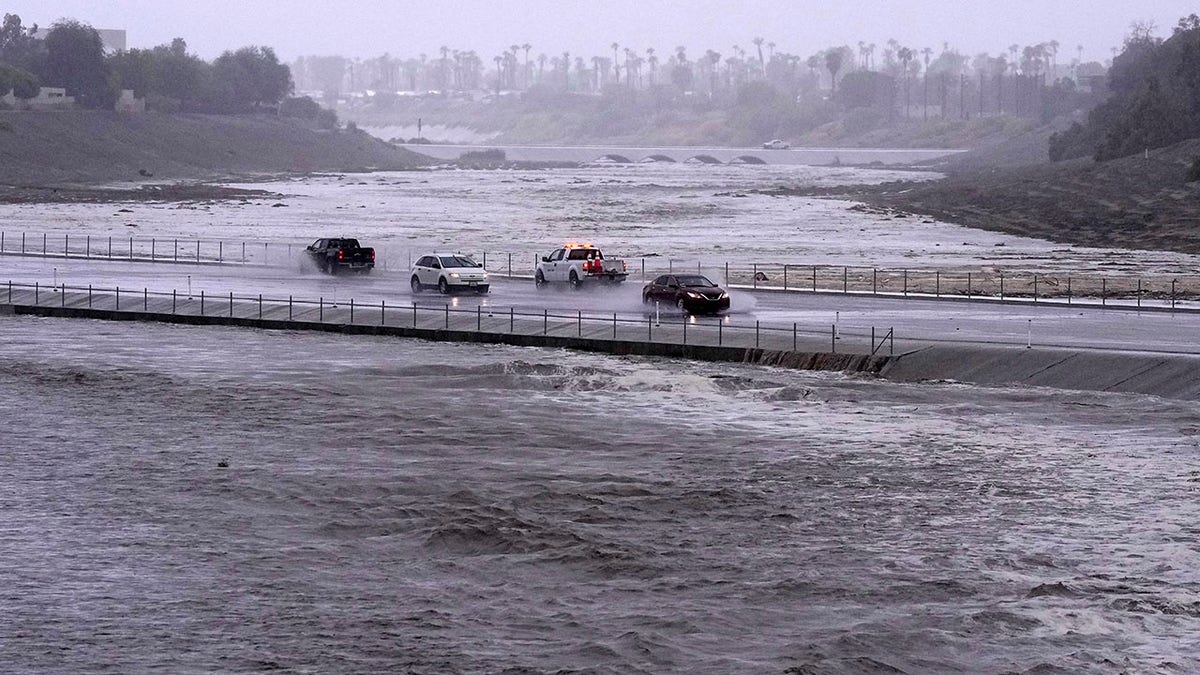
Vehicles cross over a flood control basin in Palm Desert, California. (AP/Mark J. Terrill)
Wind gusts surpassing 80 mph were recorded in some parts of California, where first responders also had to conduct water rescues.
Volcanic eruption sends lava flying in Iceland after weeks of earthquakes
A volcanic eruption unfolded in Iceland in late December after weeks of earthquakes and ominous signals, such as smoke rising out from cracks in roads.
Videos of the eruption, which happened on Dec. 18 in southwestern Iceland following the closure of popular tourist destination Blue Lagoon and evacuation of the town of Grindavik, showed lava shooting into the air.
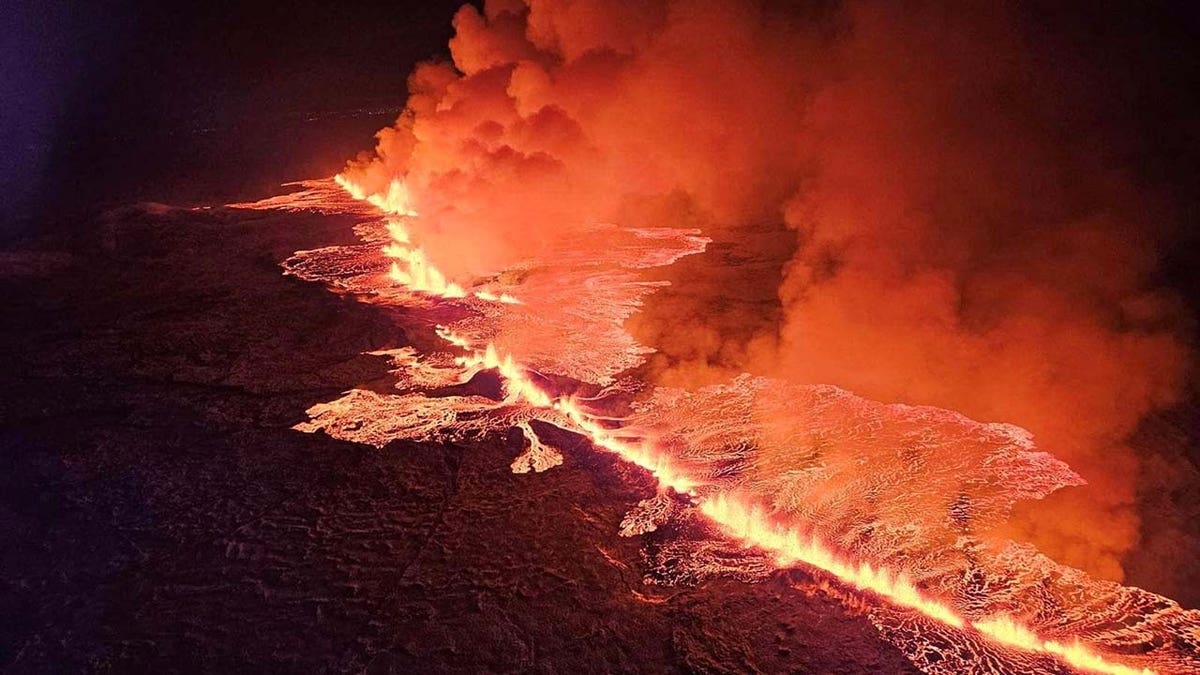
A volcano spews lava and smoke as it erupts in Grindavik, Iceland, on Dec. 18, 2023. (Civil Protection of Iceland/Handout via Reuters)
"Our priorities remain to protect lives and infrastructure," said Iceland President Gudni Th. Johannesson in a statement. "Civil [Defense] has closed off the affected area. We now wait to see what the forces of nature have in store. We are prepared and remain vigilant."
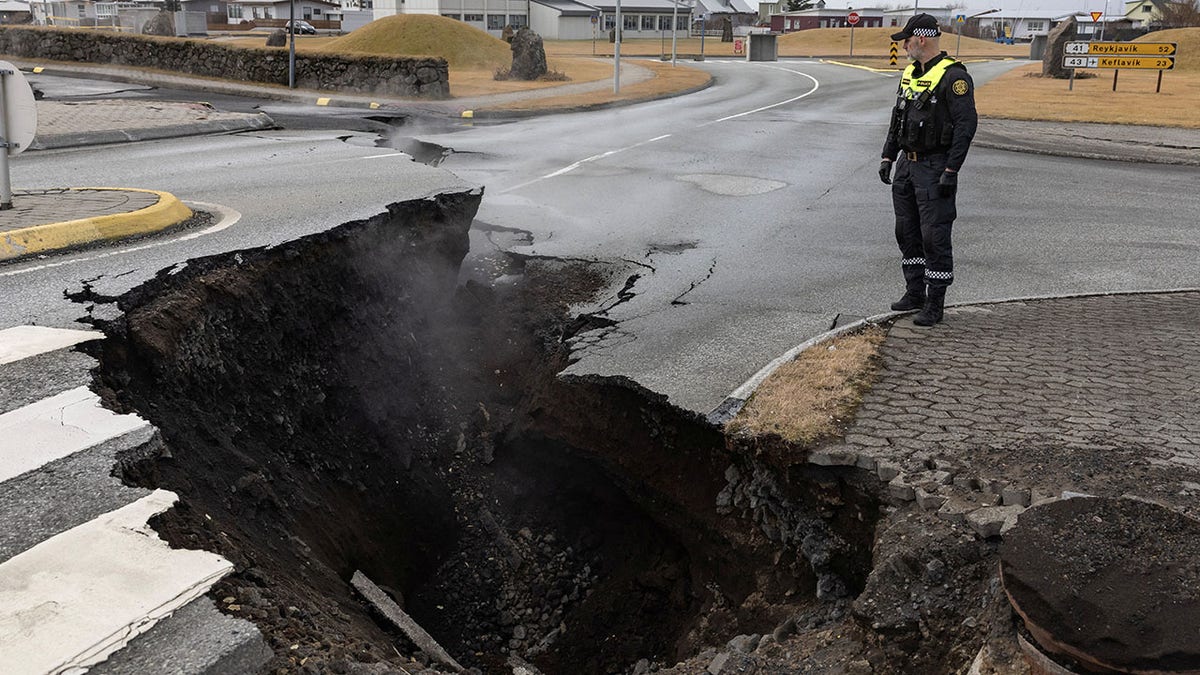
A police officer looks at a fissure in a road in the fishing town of Grindavik, which was evacuated due to volcanic activity, in Iceland on Nov. 15, 2023. (Reuters/Marko Djurica)
The eruptive volcanic fissure was estimated to be about 2.5 miles long, and visuals emerging out of Grindavik in November showed smoke coming out of roads that were damaged from hundreds of small earthquakes that shook the region.
Phoenix sets record of consecutive 110-degree days
Over the summer, Phoenix spent nearly all of July with high temperatures at or above 110 degrees, smashing its record for consecutive 110-degree days at 31.
When factoring both the high and low temperatures, the average temperature in July reached 102.74, making Phoenix the first major city in the U.S. ever to average 100 degrees or more for a month.
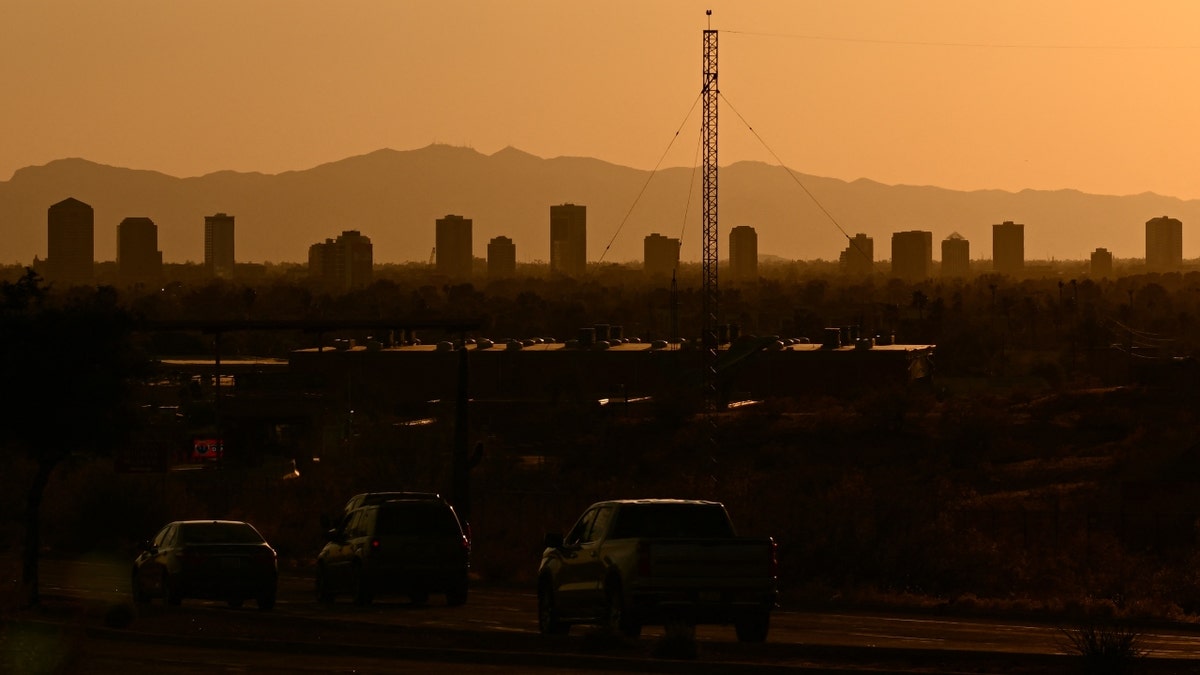
This view shows sunset during a record heat wave as seen from Papago Park in Phoenix on July 18, 2023. (Patrick T. Fallon/AFP via Getty Images)
Overall, it was the region's hottest meteorological summer on record with an average high temperature of 109.2 degrees, which broke the previous record of 108.5 degrees set in 2020.
As of November, there have been 569 confirmed deaths caused by excessive heat in the Phoenix area, according to data from the Maricopa County Department of Public Health, with 60 more deaths still under investigation.
FOX Weather’s Steven Yablonski, Chris Oberholtz, Emilee Speck, Andrew Wulfeck and Fox News’ Adam Sabes and Greg Wehner contributed to this report.



